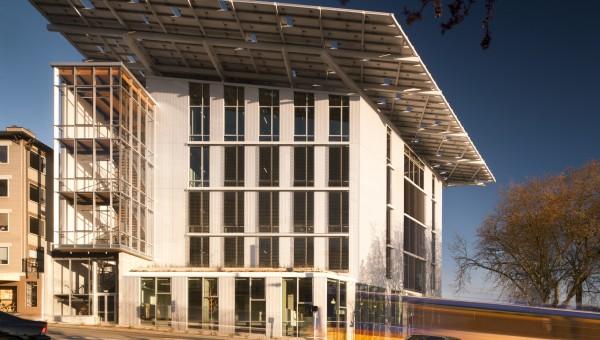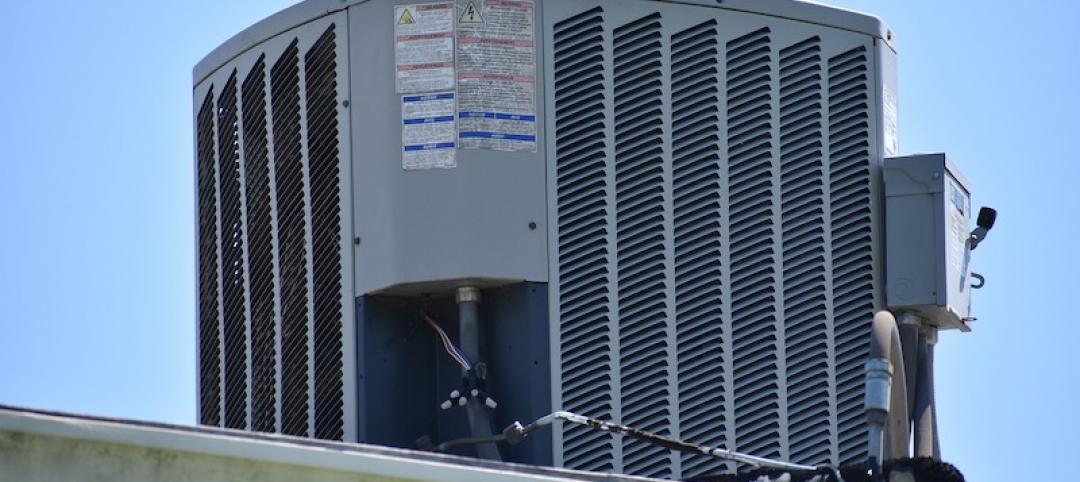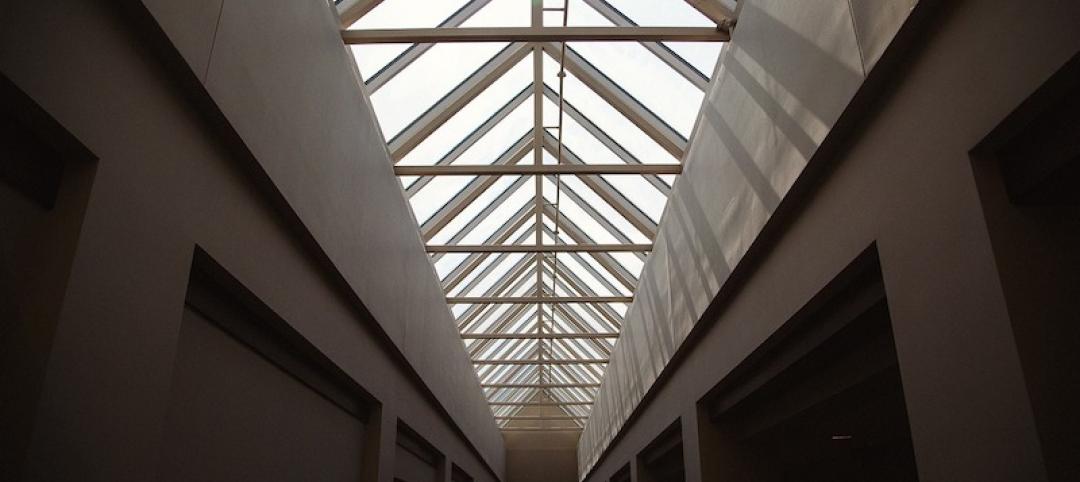The Bullitt Center in Seattle, which some say is the world's "most efficient" office building is not only influencing how other structures are built, it is contributing to revisions of codes and public policy.
The building’s design was made possible by Seattle’s Deep Green Pilot Program that allows builders to deviate from standard codes to build more sustainably. For example, the building was allowed to add two to three feet to the height of each floor to allow more daylighting. Neighbors objected to the additional 10 feet in overall building height, but the program permitted the non-conforming design.
Some of the building’s code deviations have been incorporated into the city code. For instance, the city council and the mayor had to approve changes to the building code to allow permits for “sustainability features.” This move allows the building’s solar canopy to extend all the way to the property line.
Bullitt Foundation, the environmental group that owns the building, recently signed a first-in-the-nation agreement with the local utility that will allow the foundation to sell Seattle City Light the energy it is saving or “negawatts.” The arrangement, known as MEETS (metered energy efficiency transaction structure) could be a pioneer in drawing investment funds to energy-efficiency projects.
Bullitt is also seeking final approvals from the county and state to turn the building into its own water district. That designation would allow tenants to drink rainwater collected on site and treated in the building’s basement.
(http://grist.org/business-technology/how-one-building-is-changing-the-world/)
Related Stories
Codes and Standards | Sep 22, 2020
Air cleaners, chemical and UV treatments among tools to safeguard indoor air amid pandemic
Strategies augment social distancing, increased air flow to combat COVID-19 spread.
Codes and Standards | Sep 21, 2020
No ease of lumber price spikes in sight
Wildfires strike Northwest timber industry in wake of Covid-19 shutdowns.
Codes and Standards | Sep 17, 2020
Spate of energy code appeals could hamper efficiency progress
Construction and fossil fuel interests oppose portions of latest model energy code.
Codes and Standards | Sep 16, 2020
Heat pumps are the future for hot water
Sustainability policies will drive trend.
Codes and Standards | Sep 15, 2020
Taller timber buildings approved in National Fire Protection Association code
Ensures compatibility with the International Building Code.
Codes and Standards | Sep 14, 2020
Relocation of neighborhoods, the next step in U.S. flood strategy, is underway
Repeated rebuilding after successive floods now seen as bad policy.
Codes and Standards | Sep 10, 2020
Fannie Mae programs provide incentives for multifamily solar
Affordable housing projects can find PV installations to be cost-effective.
Codes and Standards | Sep 9, 2020
Corporate pledges accelerate net-zero building movement
World Green Building Council drives goal of net-zero carbon emissions by 2050.
Codes and Standards | Sep 8, 2020
Study will examine elevator airflow amid COVID-19 pandemic
Researchers to investigate risk of airborne transmission.
Codes and Standards | Sep 4, 2020
Updated selection, application guide for plastic glazed skylights, sloped glazing released
Part of suite of skylight documents by Fenestration and Glazing Industry Alliance.

















